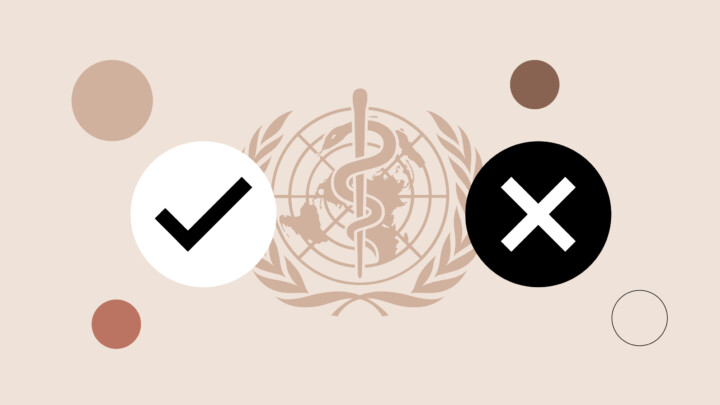
Recent cuts to mental health funding in schools have created a ripple effect that extends beyond classroom walls. While education officials debate budgets and policy makers weigh priorities, physicians are experiencing the immediate consequences in their practices. As schools reduce their mental health services, healthcare providers are stepping in to fill critical gaps—often without adequate resources or reimbursement.
Discussions on Sermo reveal that these funding reductions are already reshaping how physicians approach pediatric mental healthcare, and some are bracing for worse. “I can only imagine it’s going to get much worse as the cuts really bite,” writes one anesthesiologist.
As schools struggle to maintain adequate mental health support, physicians find themselves at the center of a growing crisis that demands both immediate response and long-term strategic thinking.
Physicians are already seeing the effects of funding cuts
In May, the U.S. Department of Education announced that it will stop providing $1 billion in federal grants that were part of the 2022 Bipartisan Safer Communities Act, which school districts used to hire mental health professionals. Since the announcement, sixteen states have sued the department of education in response.
Some physicians are already feeling the effects. In a Sermo poll, 19% of healthcare providers report receiving more mental health referrals overall, while 16% said they’re encountering cases that are notably more severe than before the funding cuts were implemented. Physicians who typically managed physical health concerns within 15-minute appointment slots now find themselves providing mental health guidance that requires significantly more time and specialized training.
A hematologist on Sermo described the shift. “We’re being forced to fill the gap schools once covered,” they write. “The students who used to receive ongoing support from school counselors are now showing up in our offices with more complex needs and fewer coping mechanisms.”
Referral networks are straining, and emergency care may bear the load
When schools can no longer provide preventive mental health care, issues escalate until they require crisis intervention. Emergency departments, already stretched thin, are becoming the default mental health providers for young people in acute distress. Even before the recent cuts in mental health funding to schools this year, a national trend toward mental health-related emergency visits among youth emerged. In the last 10 years, the proportion of mental health-related emergency department visits among young people just about doubled, according to one study.
The recent reduction in school-based mental health services may exacerbate matters. In a Sermo poll, 21% of physicians reported longer waitlists, while 39% anticipate a rise in mental health crises in emergency rooms and urgent care facilities.
A general practice physician on Sermo weighed in on the implications of overlooking mental health issues until the point of crisis. “Mental health disorders increase the risk of other illnesses and can lead to more serious complications when left untreated,” they write. “This will affect the general population, leading to more serious mental disorders requiring intensive intervention.”
Pediatricians and PCPs are absorbing more mental healthcare, often without support
Some primary care physicians are adapting their practices to meet their patients’ needs. A Sermo poll revealed that 17% of respondents are spending more time addressing mental health concerns during primary care visits, while 19% have increased collaboration with families to provide psychological support.
Insurance reimbursement rates for mental health services provided by primary care physicians can fall short of covering the actual time invested. “I spend quality time counseling troubled patients… nine times out of ten, the payment is $0,” a pediatrician on Sermo writes. “I can’t keep giving care and not getting paid.”
Aside from patient encounters, primary care physicians may spend additional unpaid time researching mental health resources, coordinating with schools and families and documenting complex cases that require ongoing attention.
Medical schools and residency programs have historically provided limited training in pediatric mental health, leaving many physicians feeling unprepared for their expanded roles. Continuing education opportunities exist, but finding time to pursue additional training while managing increased patient loads presents another challenge.
School-based programs physicians relied on are disappearing
Funding cuts have eliminated resources that physicians previously counted on to provide comprehensive patient care. In the poll, 15% of Sermo members reported that they’ve noticed a reduction in school counselors and psychologists, 11% reported a drop in behavioral health screening and triage programs and 10% saw a drop in school-community care partnerships. Another 27% saw a reduction in all of the above.
This tracks with national survey data. Only 48% of public schools report being able to effectively provide mental health services to all students who need them, a nearly 10 percent decline from 2021-2022, according to the National Center for Education Statistics (NCES). The most commonly cited causes include insufficient mental health professional staff coverage (55%), insufficient funding (54%), and limited access to licensed mental health professionals (49%).
These stats reflect the disappearance of early intervention programs that physicians relied upon to identify and address mental health concerns before they required medical intervention. School counselors can serve as a first line of defense, providing regular check-ins, crisis intervention and family communication.
In the absence of school-based programs, some children may not receive help at all. “Fewer children will receive needed services when schools can’t provide adequate mental health support,” writes a pediatrician on Sermo. “This legislation should be reexamined with consideration for the long-term consequences on public health.”
Physician advocacy and adaptation
Some healthcare providers are adapting to these policy changes. Sermo poll data shows that 13% of respondents are taking more proactive roles in advocacy efforts since the funding cuts, while 15% are increasingly relying on private or out-of-network referrals to ensure their patients receive necessary care.
Others are speaking out against the funding cuts. “We are already seeing more mental health problems in youth from increased screen time and social media…” a general practice physician writes on Sermo. “This policy change will add fuel to the fire.” A psychiatrist had a similar take. “This is too valuable a source to lose, this legislation should be reexamined,” they write.
A common theme: emphasis on the importance of prevention and early intervention. Sermo members have argued that treating mental health conditions after they’ve reached crisis levels is less effective than providing ongoing support through school-based programs. “This is preventive medicine aimed at assisting young and vulnerable minds…” writes another psychiatrist and Sermo member. “Shameful to be focusing on dollars instead of reality.”
Building sustainable solutions for the future
The current crisis has revealed both vulnerabilities and opportunities within the healthcare system’s approach to pediatric mental health. Healthcare providers on Sermo have emphasized the critical importance of prevention and early intervention. They argue that mental health conditions identified and treated early require less intensive medical intervention and produce better long-term outcomes for patients.
Collaboration between healthcare systems and educational institutions remains essential as funding challenges persist. Research underscores that funding for school-based mental health services can help increase access to these types of services, and address issues before they develop into crises.
The Sermo community’s response to school mental health funding cuts illustrates both the resilience of healthcare providers and the critical need for support. “Mental health issues are becoming increasingly prevalent,” writes a general practice resident. “Preventing, diagnosing, and treating them is of utmost importance.”















